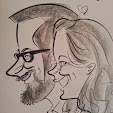I just listened to a Writing Excuses podcast (published and award-winning authors, including a New York Times bestseller, discuss the craft and business of writing fiction) where their guest talked about the Hollywood structure; ie, the formula they use for almost all successful Hollywood movies.
There are always three characters: a protagonist, a relationship character, and an antagonist. The protagonist is the main person with a concrete objective. The antagonist prevents the protagonist from fulfilling that objective. The relationship character is there to quote truth, deliver the theme of the story, and help the protagonist have a big realizational/emotional moment at the end.
There are three parts: the first part has a fateful decision that spurs the rest of the story, the second part puts the protagonist as far away from his goal as possible, and the third part is getting the protagonist from that low point to either achieving or finally dismissing his goal.
So, of all the Good Hollywood Movies, let's take the Goodest: Casablanca.

Who's the protagonist? Well, obviously Rick, the Humphrey Bogart character. The relationship character? Well, the one he wants to have a relationship with, right? Elsa? NO. It's actually the corrupt policeman, who tells Rick that there's actually a bit of a patriot inside of him (which Rick ignores until the end), and who's there at the end to start a long and beautiful friendship with him. Well, the antagonist, that's got to be easy, right? That dirty Nazi guy duh.
NO. Remember, what's Humphrey Bogart's primary objective here? It's Elsa, his long-lost love. Who is the person opposing Rick here, preventing him from achieving his goal? It's Elsa's husband, hero of Europe and escapee from multiple concentration camps, Victor Lazslow.
At the end of the movie, Rick "achieves" his goal, but then dismisses it because he realizes what the corrupt policeman had told him earlier -- he is a patriot, and he does care about the war effort over his selfish romance. So he's reconciled with the antagonist AND the relationship character in the end.
Then they explain The Dark Knight. Should be pretty easy. Protagonist? Batman. Obviously. Who's the antagonist? Well, the insane clown who's burning down the entire city and terrorizing everyone and cutting their mouths open and exploding hospitals and people's girlfriends. WRONG.
What's Batman's concrete goal? Saving Gotham City, obv. NO. Um, doing his duty?? NO. His goal, as stated to Rachel, is actually to give up this whole Batman thing and get with the love of his life, Rachel. The Joker does not actually oppose this concrete goal at all. You know who does? Harvey Dent. Not only is he dating Rachel and will probably marry her, but he's in a position to become the leader of Gotham City (in Batman's place, allowing him to retire) and constantly disappoints, forcing Batman to stay in action. The guy goes crazy, torturing people for info (which Batman rebukes him for), and then going completely crazy and gunning people down randomly. All of this opposes Batman's concrete goal.
I figured the relationship character would have to be Alfred, because he's the one who delivers all these wise lines about people just wanting to watch the world burn, and how you can only catch these people by burning down the entire forest/city. But again, I was wrong. The relationship character is the Joker. (Think about having a relationship with that guy. Ugh!)
The Joker is the one who tells Batman that he's not normal and should quit trying to be a normal citizen -- he's a freak! And that's actually the theme of the movie, and the essence of Batman's conflict. He doesn't want to be a freak in a bat costume. He wants Harvey Dent to save the city so Bruce Wayne can just be a happy millionaire with his childhood sweetheart. This all comes full circle near the end of the movie, when Batman fights the Joker. The Joker says, "Did I ever tell you how I got these scars?" Batman says, "No, but I know how you got these ones!" Batman told the Joker a joke as he defeated him. He's become like the Joker in a small way. The reason the Joker laughs at the end of all this, is that he knows Batman has realized that the Joker was right -- Batman is a freak, just like the Joker, and they're going to be butting heads for eternity.
The movie doesn't end here because he still has to deal with the antagonist, Harvey Dent. After making it clear how much Dent has screwed up Batman's whole plan of having somebody else save the city, he kills him and tells Gordon that he'll take the blame. He's given up on retiring and living a happy life -- now he's resolved to being called a bad guy, being treated as a freak, even as he fights to save the city. He's dealt with and dismissed his concrete goal from the beginning of the movie: wanting to give up on the Batman gig, becoming a more normal dude. (As normal as eccentric billionaires can be, I suppose.)
If stuff like this interests you and blows your mind, you should check out the podcast, here.

1 comment:
Woah. What a cool way to think about movies!
Post a Comment